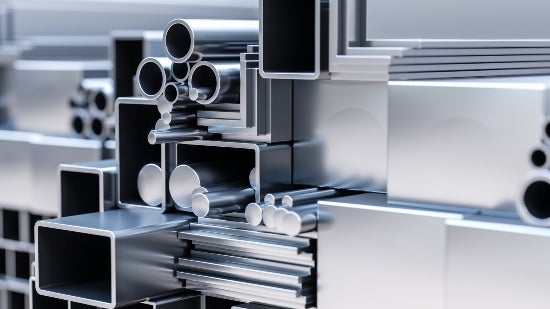Alloy Steel vs Stainless Steel: Which Is Better for Your Project?
Alloy Steel vs Stainless Steel: Which Is Better for Your Project?
Choosing the right type of steel directly impacts the success of your project, whether you’re constructing a building, designing machinery, or sourcing materials for fabrication. Alloy steel and stainless steel are two popular options, each with specific benefits and applications. Understanding their differences can help you make informed decisions that meet your project’s exact requirements. Below, we’ll compare these two metals, their types, and the factors to consider when selecting the ideal solution for your project.
What Are Alloy Steel and Stainless Steel?
Both alloy steel and stainless steel belong to the larger family of steel but differ in composition and properties.
- Alloy Steel is carbon steel mixed with additional elements like manganese, nickel, chromium, and molybdenum. These additions enhance its strength, toughness, and resistance to wear and fatigue. It is commonly used for heavy-duty applications like pipelines, machinery parts, and automotive components.
- Stainless Steel is steel that contains at least 10.5% chromium, giving it excellent corrosion resistance. Used in environments prone to moisture or chemicals, stainless steel is ideal for food processing, medical devices, and construction.
Understanding the basics of each type can guide your selection and guarantee the material meets your engineering or industrial needs. Discover the rich history and unparalleled expertise of McKnight Steel.
Why It’s Important to Choose the Right Steel
The success and safety of your project heavily relies on selecting the right material for specific applications. Choosing incorrectly can lead to material failure, reduced performance, or higher costs. Here are some key points to consider:
- Project requirements may demand specific grades or tolerances of steel.
- Environmental conditions, such as exposure to moisture or extreme temperatures, should guide material choice.
- Performance, including strength or resistance to corrosion, depends largely on steel type.
At McKnight Steel & Tube Co., we understand these needs and stock a broad range of alloy and stainless steel to help meet your exact specifications. With fast delivery times across Warminster and Philadelphia, our team keeps your project on schedule.
Explore our extensive inventory to help you plan for your next project with ease.
Types of Steel to Know About
Both alloy steel and stainless steel come in different forms designed for specific purposes.
Types of Alloy Steel
- High-Strength Low-Alloy Steel (HSLA): Ideal for structural applications due to its strength and lightweight properties.
- Tool Steel: Used for cutting, shaping, and drilling due to its hardness and wear resistance.
Types of Stainless Steel
- Austenitic Stainless Steel: Non-magnetic and resistant to corrosion. Austenitic stainless steel is widely used in many industries and applications.
- Ferritic Stainless Steel: Magnetic and less corrosion-resistant but cost-effective for automotive parts. It offers excellent ductility and formability.
- Martensitic Stainless Steel: Strong and hard but less corrosion-resistant and more difficult to fabricate. Used where hardness is required.
Understanding the range of steel types available allows you to select one aligned with your functional and environmental requirements.
Comparing Key Factors
To help make your decision, here’s a quick comparison of alloy steel and stainless steel based on important criteria.
- Corrosion Resistance: Stainless steel is generally better suited for environments prone to moisture or exposure to chemicals.
- Strength: Alloy steel, especially tool steel or high-strength low-alloy steel, offers superior strength and wear resistance.
- Cost Efficiency: Alloy steel tends to be more economical, especially for large-scale projects where corrosion resistance isn’t a priority.
Each material excels in certain areas, so selecting the right steel depends on its intended application.
Why Choose McKnight Steel?
At McKnight Steel & Tube Co., we’ve been serving the Philadelphia and Warminster, PA, areas since 1954. Here’s why engineers, metal purchasers, and construction companies trust us:
- Extensive Inventory: Stocking carbon, stainless, aluminum, and alloy tubing and pipe in various shapes (round, square, and rectangular).
- Fast Delivery: Our company trucks deliver within a 120-mile radius of Warminster, PA, with quick turnaround times.
- Value-Added Services: Cutting to precise lengths, deburring, threading, and fabricating.
- One-Stop Solution: Customers can order both tubing and complementary metal shapes, such as angles and channels, ensuring their entire project’s needs are met.
With an unmatched commitment to service and reliability, McKnight Steel provides materials that meet your project specifications and delivery schedules.
Contact Us for Your Steel Needs
Selecting the right steel doesn’t have to be complicated. With expertise spanning over six decades, McKnight Steel & Tube Co. is ready to help find the perfect material for your project. When you need alloy steel for its strength or stainless steel for its durability, we stock a vast inventory to meet your needs.
Contact us today at 215-396-9976 to request a quote or speak with our experienced team. Family-owned and operated since 1954, we are here to ensure your project’s success—on time, every time.


